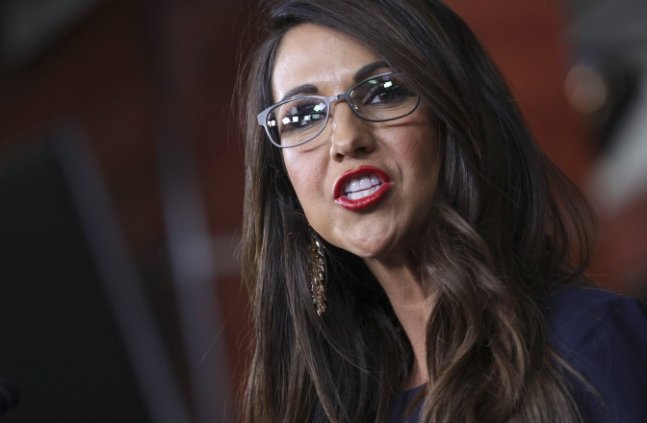Why did Boebert decide to change districts?
Rep. Lauren Boebert, R-Colo., announced on Wednesday that she will run for reelection in a different congressional district than the one she currently represents. Boebert said she will seek the Republican nomination in the 4th Congressional District, which is currently held by retiring Rep. Ken Buck, R-Colo. The 4th District is more conservative and rural than the 3rd District, which Boebert narrowly won in 2022.
Boebert claimed that her decision was motivated by a desire to prevent “dark money” from “stealing” the 3rd District seat from the Republicans. She accused “Aspen donors, George Soros and Hollywood actors” of trying to buy the seat and support her Democratic opponent, Adam Frisch, a former Aspen city council member. Frisch came within 500 votes of defeating Boebert in 2022 and has raised more than $7.7 million for his 2024 campaign, compared to Boebert’s $2.4 million.
Boebert also said she wanted a “fresh start” after a tumultuous year that included a divorce, a scandal involving a date at a musical show, and controversies over her outspoken support for former President Donald Trump and her opposition to COVID-19 mandates. Boebert faced a primary challenge in the 3rd District from attorney Jeff Hurd, who had the endorsement of former Gov. Bill Owens, R-Colo.
How did the political parties and candidates react to Boebert’s move?
Boebert’s announcement was met with mixed reactions from both parties and the candidates in the 3rd and 4th Districts. Some Republicans welcomed Boebert’s switch, saying it would boost the party’s chances of holding both seats and maintaining its slim majority in the House. Others criticized Boebert for abandoning her constituents and running away from a tough race.

Frisch, Boebert’s Democratic rival in the 3rd District, said Boebert was “running scared” and could not match his campaign’s ability to connect with voters and offer common sense solutions. Frisch said he had one of the greatest name recognition, fundraising, and district-wide relationship advantages for any challenger in the country. He said he would continue to focus on defending rural Colorado’s way of life and bringing these issues to Congress in 2024.
In the 4th District, Boebert will join a crowded Republican primary that includes state Sen. Jerry Sonnenberg, state Rep. Rod Pelton, Weld County Commissioner Scott James, and former congressional aide Perry Buck, who is the ex-wife of Rep. Ken Buck. Some of the candidates said they welcomed Boebert to the race and looked forward to a spirited debate. Others said they were surprised and disappointed by Boebert’s decision and questioned her commitment to the district.
What are the implications of Boebert’s switch for Colorado and the nation?
Boebert’s switch could have significant implications for Colorado’s political landscape and the balance of power in Congress. The 3rd District, which covers most of western and southern Colorado, is one of the most competitive and diverse districts in the state. It has a mix of urban, rural, and mountain communities, as well as a large Latino population. The district has been represented by both parties in recent years, with former Rep. Scott Tipton, R-Colo., holding the seat from 2011 to 2021, and former Rep. John Salazar, D-Colo., holding it from 2005 to 2011.
The 4th District, which covers most of eastern and northeastern Colorado, is one of the most conservative and homogeneous districts in the state. It has a predominantly white, rural, and agricultural population, and has been a Republican stronghold for decades. The district has been represented by Buck since 2015, and before him by former Rep. Cory Gardner, R-Colo., who later became a senator and lost his seat to Democrat John Hickenlooper in 2020.
Boebert’s switch could make the 3rd District more favorable for the Democrats, who hope to flip the seat and expand their narrow majority in the House. Frisch, who has a moderate and pragmatic profile, could appeal to independent and Republican voters who are dissatisfied with Boebert’s divisive and controversial style. Frisch could also benefit from the support of national and local Democratic groups, as well as the fundraising advantage he has over any potential Republican challenger.
Boebert’s switch could also make the 4th District more competitive for the Republicans, who face a crowded and contentious primary that could divide the party and alienate some voters. Boebert, who has a loyal and passionate base of supporters, could mobilize the grassroots and win the nomination with a plurality of votes. However, Boebert could also face resistance from some Republicans who prefer a more traditional and experienced candidate, or who question her loyalty and suitability for the district. Boebert could also face a strong Democratic challenger, such as state Sen. Kerry Donovan, who has announced her candidacy for the seat and has raised more than $1.2 million.














